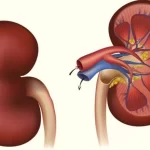Intermittent fasting is a dietary pattern that has gained significant popularity in recent years and for a good reason. This method involves alternating between periods of fasting and eating, offering a myriad of health benefits. One of the most common approaches to 16-hour fasting is the 16/8 method, where individuals fast for 16 hours and consume all their meals within an 8-hour window. In this blog post, we’ll explore the concept of intermittent fasting, its various methods, and the proven health benefits it can bring, including weight loss, improved insulin sensitivity, and reduced inflammation.
Understanding Intermittent Fasting
Intermittent fasting is not a diet but rather an eating pattern. It doesn’t dictate what you eat, but instead, it focuses on when you eat. The idea is to extend the natural fasting period that occurs between meals and give your body ample time to rest and rejuvenate. The 16/8 method is one of the most popular approaches to 16-hour fasting, but there are other methods as well, such as the 5:2 method (where you eat normally five days a week and restrict calories for two non-consecutive days) or the eat-stop-eat method (where you fast for 24 hours once or twice a week).
Health Benefits of Intermittent Fasting
Weight Loss: One of the primary reasons people adopt intermittent fasting is for weight management. When you limit the eating window, you naturally consume fewer calories, leading to a calorie deficit. Additionally, 16-hour fasting can boost your metabolism, helping your body burn fat more efficiently. Several studies have shown that 16-hour fasting can be as effective, if not more, than traditional calorie-restricted diets for weight loss.
Improved Insulin Sensitivity: Intermittent fasting has been found to positively impact insulin sensitivity. With less frequent meals, your body has more time to regulate blood sugar levels and use insulin more efficiently. This effect can be especially beneficial for individuals at risk of type 2 diabetes or those with insulin resistance.
Reduced Inflammation: Chronic inflammation is linked to numerous health issues, including heart disease, diabetes, and autoimmune disorders. Studies have shown that 16-hour fasting can help reduce inflammation markers in the body, promoting overall well-being.
Cellular Repair and Autophagy: During fasting periods, the body engages in a process called autophagy, where it cleans out damaged cells and regenerates new ones. This cellular repair process is essential for healthy aging and reducing the risk of certain diseases.
Enhanced Brain Health: Intermittent fasting may have neuroprotective effects, supporting brain health and cognitive function. Some studies suggest that it could potentially reduce the risk of neurodegenerative diseases such as Alzheimer’s and Parkinson’s.
Tips for Incorporating Intermittent Fasting
If you’re considering intermittent fasting, it’s essential to do it safely and in a way that suits your lifestyle. Here are some tips to get started:
- Start Gradually: If you’re new to intermittent fasting, begin with a shorter fasting window and gradually increase it over time.
- Stay Hydrated: Drink plenty of water during fasting periods to stay hydrated and help control hunger.
- Focus on Nutrient-Dense Foods: Make sure your meals during the eating window are balanced and filled with nutrient-dense foods to support your overall health.
- Listen to Your Body: Pay attention to how you feel during fasting periods. If you experience any adverse effects, consider adjusting your fasting window or consulting a healthcare professional.
Conclusion
Intermittent fasting is more than just a fad; it’s a scientifically supported eating pattern that offers numerous health benefits. From weight loss to improved insulin sensitivity and reduced inflammation, intermittent fasting can be a valuable tool in achieving and maintaining a healthy lifestyle. However, like any dietary change, it’s essential to approach 16-hour fasting with mindfulness and consider individual needs and preferences. Before starting any new eating regimen, consult with a healthcare professional to ensure it’s suitable for your unique health circumstances.






